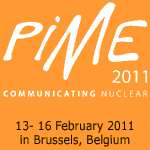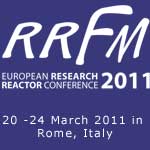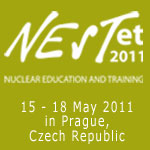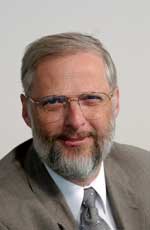
| |
by Jean-Claude Gauthier
|
Young professionals are, of course, the nuclear ‘standard bearers’ of the future. It is with this in mind that I point to the benefits of training with the new ENELA, where our fellows can really take a quantum leap forward towards achieving their career goals.
Just over two years ago, the Competitiveness Council of Ministers representing EU Member States asked for additional efforts to be made in maintaining skills in the nuclear field. ENELA, which is championed by the European Commission, identified at an early stage that some national and international programmes were addressing the current shortage of engineers with the necessary practical training and technical expertise to drive nuclear energy programmes forward.
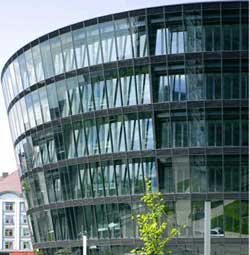
ENELA's centre of leadership
However, until now, there have been no adequate European initiatives to encourage and promote leadership recruitment and development at the level of young graduates with management potential, high-potential professionals, executive managers, opinion formers and policy makers. From ENELA's high-tech business school environment near the centre of Munich, which includes purpose-built amphitheatre-style lecture rooms, we offer practical-oriented management and leadership programmes and, therefore, fill a gap in existing training activities.
Six leading nuclear companies have led the way in filling this gap, by attracting and training promising European professionals through their support for ENELA. The six – AREVA, Axpo AG, EnBW, E.ON Kernkraft GmbH, URENCO Limited and Vattenfall AB – signed a multi-party agreement in January 2010 that formally established the Academy.
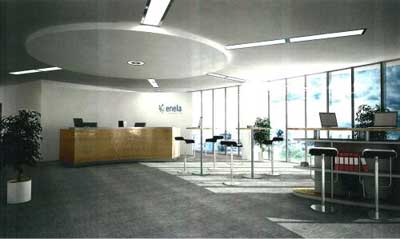
This year sees the first intake of fellows for two of our programmes: the ENELA Leadership Cycle (ELC) and the ENELA Management Programme (EMP). EMP is a technically and business-oriented degree and is unique for Europe in that it will focus on issues of pertinence to the nuclear energy community. ELC is recommended for senior managers and executives across a range of backgrounds – human resources, finance, purchasing, communications, legal – not only those with technical expertise. March 2011 sees the first intake of fellows for ELC, where they will grasp a broad understanding of the global nuclear energy sector.
We will prepare fellows from a range of backgrounds to take on additional and greater responsibilities and see them as ‘leaders-to-be’ in serving the global nuclear energy industry and its stakeholders.
In the one-year EMP degree programme, fellows will learn how to take creative approaches to simultaneously tackling scientific and commercial issues. In October 2010, a first Memorandum of Understanding (MOU) was signed with the Technical University of Munich (TUM) for support in the establishment of a joint Masters in Nuclear Energy Management for this programme.
EMP will equip fellows to deal effectively with issues they may face as their career progresses and give them the confidence and competence to deal with experts in all fields.
TUM and prestigious European partner universities and high schools, in working with ENELA and major European nuclear energy stakeholders, are bridging the gap between higher education and the wider nuclear energy community. This will enable fellows to harness their potential to move ahead in a fast-paced and demanding professional environment.
The EMP curriculum is shaped in close cooperation with key nuclear energy players. Industry experts and human resources managers, from major European nuclear energy companies and organisations, will play an active role in the ongoing development and enhancement of the curriculum, implementing training and selecting and evaluating fellows.
This strong involvement, associated with high value internships – secured exclusively for EMP – will ensure fellows are the best-placed to take advantage of opportunities that will arise in technical or commercial nuclear environments on completion of training. An extensive schedule of visits will supplement the overall training programme, so that fellows can benefit first-hand from sharing experiences in the field.
However, ENELA exists not only to serve industry but also the wider nuclear energy community. For example, governmental and administrative bodies at a local, regional, national and European level and safety authorities.
At this stage in ENELA’s development we have a broadly European focus, but we are already receiving inquiries from markets outside Europe with established nuclear power programmes and in regions where the introduction of nuclear power is on the agenda.
Our key objectives over the next 12 months are the successful implementation of both the ELC and EMP programmes. We are also developing the ENELA Conference Cycle, which is destined to become a centre of excellence for presenting and debating facts about nuclear power as part of the wider global energy mix.
Details of all ENELA’s activities and programmes are available on the Academy’s website (www.enela.eu).
